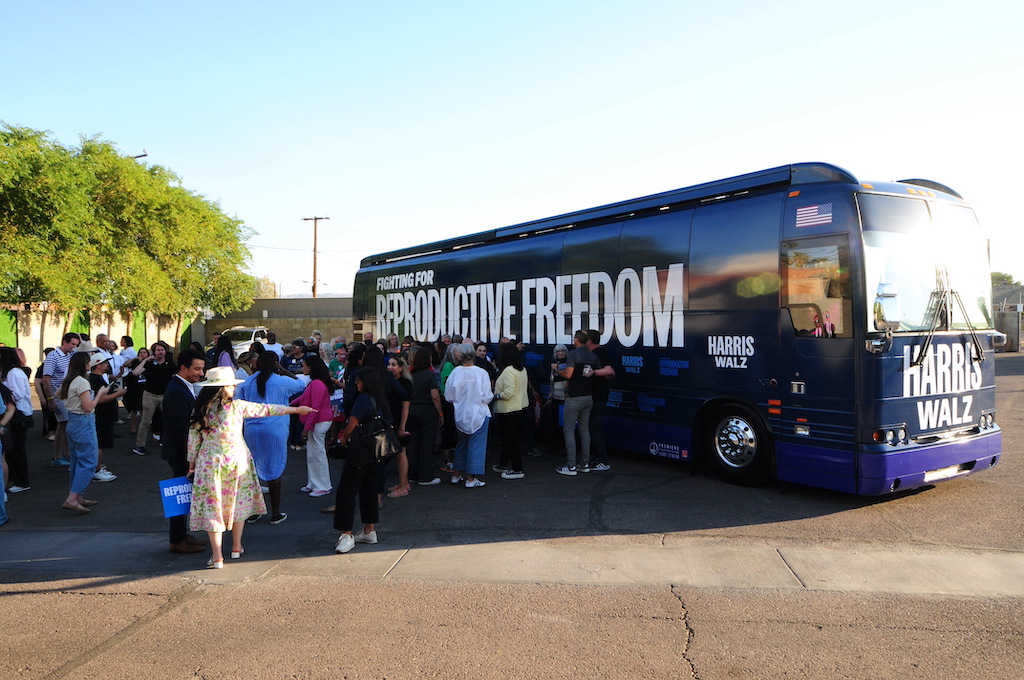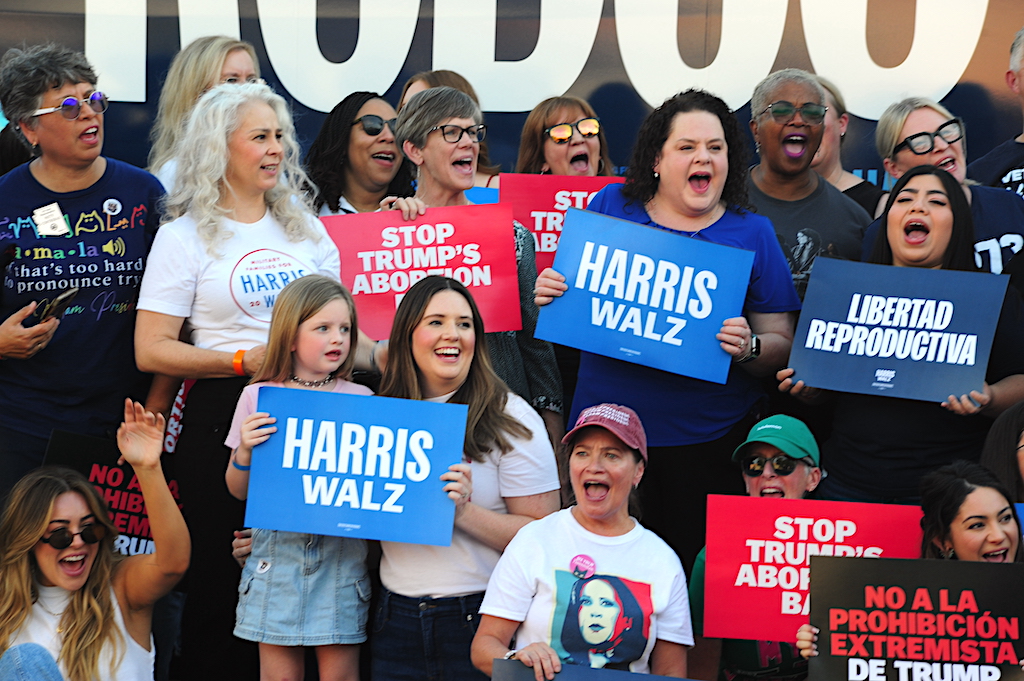(Phoenix, Arizona) — In the two years since the U.S. Supreme Court overturned Roe v. Wade, abortion has moved from a protected federal right to a starkly regional issue, with laws now shifting in each state based on its political climate. This seismic change has reshaped the legal landscape and deepened divides in American society, especially as abortion emerges as a leading factor in the 2024 presidential race.
Candidates on both sides of the aisle are approaching this election with firm stances, tapping into a complex network of social, moral, and political values that reflect the polarized heart of American politics.
Related → The housing crisis: a defining issue in the 2024 presidential election
A Post-Roe America: abortion rights redefined
The 2022 decision to overturn Roe rapidly spurred a wave of restrictive abortion laws across the U.S., dramatically redrawing the map of reproductive healthcare access. Within months, 14 states implemented near-total bans, and others followed with restrictions that have left many women without feasible options for care.
For millions—especially in rural or lower-income areas where healthcare options were already limited—access to abortion has now become an overwhelming and costly challenge. This shift has intensified the already stark healthcare disparities that exist for marginalized communities, particularly for Black, Latino, and low-income women.
Public opinion, meanwhile, continues to diverge from these legislative moves: approximately 62% of Americans support legalized abortion in most or all cases, underlining a profound gap between societal values and state-imposed restrictions. The discrepancy has fueled activism, bringing abortion rights groups to the front lines of one of the nation’s most heated policy battlegrounds.
Healthcare providers in legal limbo
For healthcare providers, the risks associated with offering abortion services have skyrocketed in states with strict laws, even in medically necessary situations. The threat of legal consequences has led many clinics to close or limit services, creating a “chilling effect” that extends well beyond abortion and into broader reproductive healthcare. Doctors, especially in conservative states, are caught in a minefield of legal and ethical dilemmas, which can place them at odds with their commitment to patient care.
The medical community, facing these challenges, has largely voiced its dismay. Major health organizations, including the American Medical Association and American College of Obstetricians and Gynecologists, have condemned restrictive laws, citing dire consequences for women’s health and autonomy. The Supreme Court’s ruling has thus not only altered access to abortion but also cast doubt over the future stability of reproductive health services in regions where restrictions now reign.
Pro- and anti-abortion protesters clashed outside the U.S. Supreme Court in Washington, D.C., on June 24, 2024, marking the second anniversary of the high court’s landmark abortion ruling.
Campaigns and contrasts: 2024 candidates define their positions
As the 2024 presidential race unfolds, abortion has become a pivotal point of distinction between Vice President Kamala Harris and former President Donald Trump. Harris is running on a platform that pledges to reinstate federal protections for abortion, underscoring reproductive rights as a matter of equality and bodily autonomy. She has promised to pursue legislation that would codify Roe v. Wade into federal law, rallying voters who fear further erosion of personal freedoms.
Trump, on the other hand, has thrown his support behind state autonomy over reproductive laws, aligning with the conservative stance that embraces life-from-conception principles. His campaign underscores a “pro-life” approach, which advocates for returning reproductive decisions to states, citing moral and ethical reasons while prioritizing the sanctity of life as a core value.
With each side embodying starkly opposing philosophies, the battle for the White House has taken on symbolic dimensions, framing the election as a referendum on the nation’s moral and legal stance on abortion. This, in turn, could shape voter turnout across key states, as both parties seek to galvanize their respective bases.

A society divided: moral and ethical complexity of the abortion debate
Abortion stands as one of America’s most polarizing topics, entwining personal beliefs, religious doctrine, and ethical philosophy in a profound debate. Proponents of abortion rights argue that access to reproductive healthcare, including abortion, is essential for gender equality, allowing women the autonomy to make critical decisions about their health and future. Many supporters highlight the need for safe and regulated abortion access as a matter of public health and economic equity, stressing that bans disproportionately affect women in underserved communities.
Conversely, opponents of abortion cite deeply rooted ethical convictions, often grounded in religious or philosophical beliefs, that view life as beginning at conception. They argue that abortion represents an affront to the sanctity of life and advocate for alternatives that, in their view, respect both women’s rights and fetal rights. The conversation is further complicated by discussions about psychological impacts and the societal implications of declining birth rates, as well as the broader ethical questions surrounding reproductive choice.
Pro- and anti-abortion protesters confront each other outside the U.S. Supreme Court in Washington, D.C., on June 24, 2024, marking the second anniversary of the court’s abortion ruling.
The Stakes of the 2024 Election
This election is about more than policy positions; it has become a moment of reckoning for America’s legal and moral compass. The outcome will determine the future trajectory of reproductive rights, potentially solidifying a patchwork of rights or leading to nationwide protections. As Americans prepare to vote, the stakes are undeniably high, and the public is encouraged to weigh not only personal beliefs but also the far-reaching consequences of this choice on healthcare, legal rights, and the fabric of American society.
Each vote in 2024 will be part of a broader decision on how America navigates one of the most contentious issues of our time, with consequences likely to be felt for generations to come.
© 2024, Eduardo Barraza. All rights reserved.





